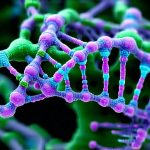Our bodies are remarkably efficient machines, constantly breaking down food into usable energy and nutrients. This complex process isn’t simply about chewing and swallowing; it relies heavily on a team of biological catalysts called enzymes. These tiny but powerful molecules are essential for dismantling the macronutrients – carbohydrates, proteins, and fats – we consume into smaller components our bodies can absorb. Without adequate enzyme activity, digestion becomes compromised, potentially leading to discomfort, nutrient deficiencies, and ultimately impacting overall health, particularly within the digestive system itself.
The efficiency of this breakdown directly affects bowel health. Poor digestion often manifests as bloating, gas, diarrhea, or constipation – all signs that something isn’t functioning optimally in the gut. Understanding the role of digestive enzymes can empower individuals to make informed choices about their diet and lifestyle to support a healthy digestive process and promote comfortable, regular bowel movements. This article will explore the types of digestive enzymes, where they come from, and how their function relates directly to the health of our bowels.
Digestive Enzymes: The Breakdown Crew
Digestive enzymes are categorized based on the type of nutrient they break down. Amylase tackles carbohydrates, protease handles proteins, and lipase targets fats. Each enzyme has a specific site on which it acts, ensuring efficient and targeted digestion. These aren’t just passively present; their production is stimulated by signals from the nervous system and hormones in response to food intake.
Sources of Digestive Enzymes
Our bodies naturally produce digestive enzymes within the pancreas, stomach, and small intestine. However, enzyme production can decline with age or be compromised by certain health conditions. Additionally, many foods themselves contain natural enzymes that begin the digestive process even before reaching the intestines – for example, pineapple contains bromelain, a protease.
The Role of Amylase in Carbohydrate Digestion
Amylase is secreted primarily from the pancreas and salivary glands. Its primary role is to break down complex carbohydrates like starches into simpler sugars such as glucose. Insufficient amylase can lead to undigested carbohydrates reaching the colon, where bacteria ferment them, resulting in gas, bloating, and discomfort. This process also impacts stool consistency – too rapid fermentation may cause diarrhea, while slower digestion and increased bacterial activity could contribute to constipation.
The Importance of Proteases for Protein Breakdown
Proteases are a family of enzymes responsible for breaking down proteins into amino acids. Pepsin is secreted in the stomach, initiating protein digestion, while pancreatic proteases like trypsin and chymotrypsin continue this process in the small intestine. Incomplete protein digestion can result in large undigested protein fragments that irritate the bowel lining, potentially leading to inflammation or altered gut permeability. Some individuals may experience symptoms such as abdominal pain, gas, and changes in stool when protein isn’t efficiently broken down.
Lipase and Fat Digestion: A Critical Connection
Lipase, produced mainly by the pancreas, is essential for breaking down fats into fatty acids and glycerol. This process requires bile, which emulsifies fats to make them more accessible to lipase. Inadequate lipase activity can result in malabsorption of fat and fat-soluble vitamins (A, D, E, K). Undigested fats contribute to steatorrhea – the presence of excessive fat in stool – often resulting in greasy, bulky stools and potential diarrhea. Efficient fat digestion is also crucial for maintaining gut barrier function.
Ultimately, a healthy digestive system relies on a coordinated effort between all these enzymes. Supporting enzyme activity through dietary choices, lifestyle adjustments, or potentially supplementation (under guidance) can contribute to improved bowel health and overall well-being. It’s important to remember that individual needs vary, and addressing underlying causes of digestive issues is paramount. Focusing on a whole foods diet rich in naturally occurring enzymes, managing stress levels, and ensuring adequate hydration are all foundational steps toward supporting a thriving gut environment.


















